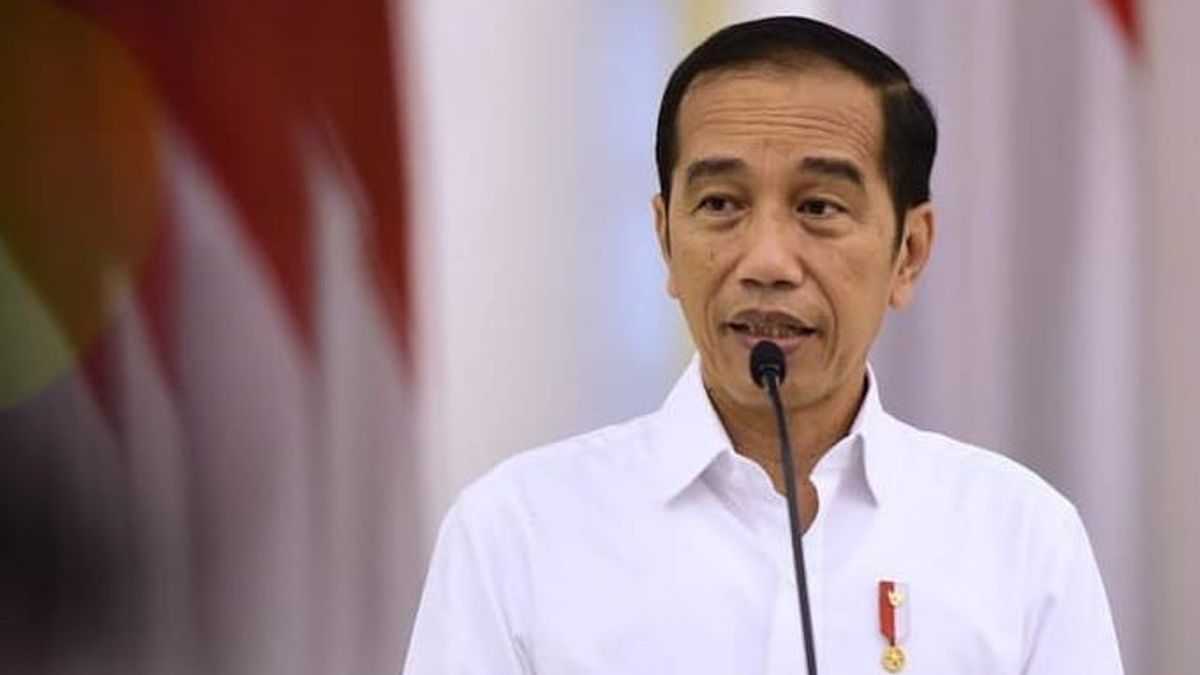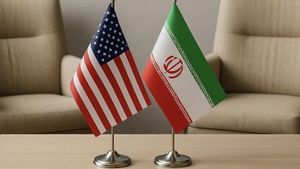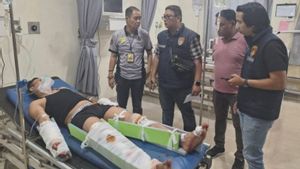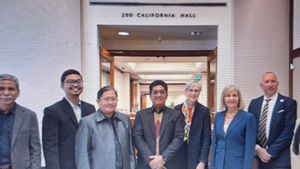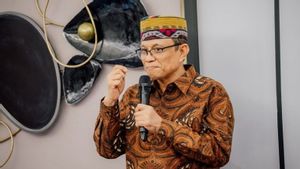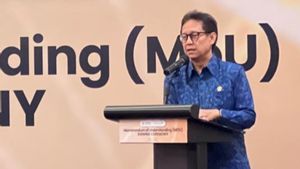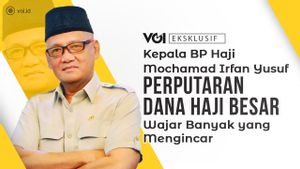JAKARTA - President Joko Widodo (Jokowi) emphasized to his ministers that the allocation of social safety nets for lower-class people who are affected by the spread of COVID-19 should not be done in a complicated manner and must be sure to be right on target.
Currently, he said, the government has prepared funds amounting to Rp110 trillion which is ready to be allocated so that people who are prioritized to receive assistance can still meet their basic needs and maintain purchasing power.
"The distribution is as soon as possible, as fast as possible. Precise and fast. The mechanism for distributing the social safety net program is made as efficient as possible," said Jokowi before chairing a limited meeting on the effectiveness of the distribution of the social safety net program at the Bogor Presidential Palace, Tuesday, April 7.
The former governor of DKI Jakarta also asked his ministers to think of an easy and practical way, not to complicate the bureaucracy that made it troublesome for the community.
Apart from that, he also requested that in distributing this assistance, the ministers involve the lower economic sectors such as micro businesses, small businesses, groceries traders and transportation services such as motorcycle taxis.
"So that this can motivate the participation of the efforts below so that together with us and also the economy below will also move," he said.

To ensure that the assistance provided is not misplaced, Jokowi asked his ranks of ministers to involve the existing Rukun Tetangga (RT) and Rukun Wilayah (RW) structures when conducting joint data collection with the village and local governments.
The goal is that the data of the beneficiaries is really accurate and in accordance with their address, so that it is right on target.
Kind of help
Jokowi then explained that out of the Rp110 trillion of funds disbursed by the government for the social safety net program, there are several assistance that can be enjoyed by the lower class.
This includes expanding the number of beneficiaries of the Family Hope Program (PKH), from what was previously only received by 9.2 million families, now it has increased to 10 million families. In addition, the current benefit value is increased by about 25 percent and the distribution is accelerated every three months.
"Then the food cards were also increased from 15.2 million recipients to 20 million beneficiaries whose value was increased by 30 percent from Rp150 thousand to Rp200 thousand and was given for 9 months," said Jokowi.
Especially for the Jabodetabek area, he said, the government is preparing a special assistance program for 3.7 million heads of families during the two-month emergency response period as determined by the Covid-19 Handling Acceleration Task Force Team.
With the distribution of 1.1 million family heads, the assistance will be prepared by the Provincial Government of DKI Jakarta, while the remaining 2.6 million will be prepared by the central government.
"Apart from that, I have also ordered the Minister of Social Affairs to immediately distribute 200 thousand food packages for the Jabodetabek area," he said.
Then regarding the Pre-employment Card, the plan will start on Thursday, April 9. This assistance will later be focused on those who have been laid off due to COVID-19, informal workers, affected micro and small business actors.
"The budget has been increased from Rp. 10 trillion to Rp. 20 trillion and beneficiaries are 5.6 million people," he said.
Finally, the free electricity program for 24 million customers using 450VA power and a 50 percent discount for 7 million customers using 900VA power. The provision of electricity subsidies will be carried out during April, May and June.
The English, Chinese, Japanese, Arabic, and French versions are automatically generated by the AI. So there may still be inaccuracies in translating, please always see Indonesian as our main language. (system supported by DigitalSiber.id)
